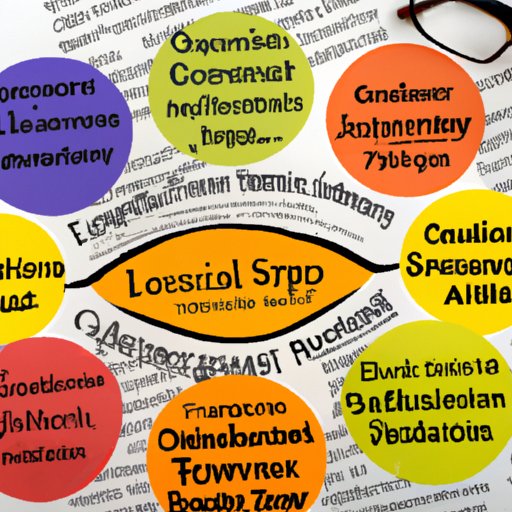Introduction
Student loan debt is one of the most significant financial burdens faced by many college graduates today. With the cost of college tuition increasing each year, more and more students are turning to student loan forgiveness programs as a way to manage their debt. But what exactly is student loan forgiveness? How does it work? This article will provide an overview of student loan forgiveness and explain the eligibility requirements, different types of programs available, and the potential impacts on your credit history.
Explaining the Eligibility Requirements for Student Loan Forgiveness
In order to be eligible for student loan forgiveness, borrowers must meet certain criteria. Generally speaking, there are two categories of student loan forgiveness programs: federal and private. Federal student loan forgiveness programs are administered by the Department of Education and generally require that borrowers have a specific type of loan, such as a Direct or Perkins loan, or meet certain income requirements. Private student loan forgiveness programs, on the other hand, are offered by private lenders and may have different eligibility criteria. It’s important to understand the requirements for both types of programs before applying.

Outlining the Different Types of Student Loan Forgiveness Programs
Once you have determined if you are eligible for student loan forgiveness, it’s important to understand the different types of programs available. The most common type of student loan forgiveness program is the Public Service Loan Forgiveness Program (PSLF). Under this program, borrowers who have made 120 qualifying payments while employed in a public service job may be eligible for loan forgiveness. Other options include Income-Driven Repayment Plans, which allow borrowers to pay a percentage of their discretionary income over a period of time, and certain state-based programs that offer loan forgiveness to borrowers with certain types of loans.
Examining the Impact of Student Loan Forgiveness on Credit History
It’s also important to consider the impact of student loan forgiveness on your credit history. While loan forgiveness can help reduce your debt burden and free up money for other expenses, it can also have an effect on your credit score. Depending on the type of loan forgiveness program you choose, your credit score may go up or down as a result. Additionally, loan cancellation and settlement may also affect your credit score, so it’s important to speak with a financial advisor before making any decisions.

Comparing Private and Federal Student Loan Forgiveness Programs
When considering student loan forgiveness, it’s important to compare the benefits of federal and private programs. Federal student loan forgiveness programs typically offer more generous terms and lower interest rates than private programs, as well as more stability and better customer service. Private student loan forgiveness programs, on the other hand, often offer more flexible repayment options and the ability to customize repayment plans to fit individual needs.

Dissecting the Pros and Cons of Student Loan Forgiveness
Student loan forgiveness can be a great option for those looking to reduce their debt burden, but it’s important to weigh the pros and cons before making any decisions. On the plus side, loan forgiveness can help borrowers avoid defaulting on their loans, as well as reduce their monthly payments and overall debt burden. On the downside, loan forgiveness can reduce the amount of money available for other expenses, and may have a negative impact on credit scores.
Investigating the Tax Implications of Student Loan Forgiveness
Finally, it’s important to consider the tax implications of student loan forgiveness. In most cases, student loan forgiveness is considered taxable income and must be reported on your taxes. However, there are strategies that can be used to minimize the tax liability associated with student loan forgiveness, such as filing for insolvency or using an IRS hardship exemption. It’s important to speak with a tax professional before making any decisions.
Conclusion
Student loan forgiveness can be a great option for those looking to reduce their debt burden and free up money for other expenses. However, it’s important to understand the eligibility requirements, different types of programs available, and the potential impacts on your credit history before making any decisions. Additionally, it’s important to consider the tax implications of student loan forgiveness and speak with a tax professional before making any decisions. Ultimately, student loan forgiveness can be a great option for those looking to reduce their debt burden, but it’s important to do your research and make an informed decision.
(Note: Is this article not meeting your expectations? Do you have knowledge or insights to share? Unlock new opportunities and expand your reach by joining our authors team. Click Registration to join us and share your expertise with our readers.)
